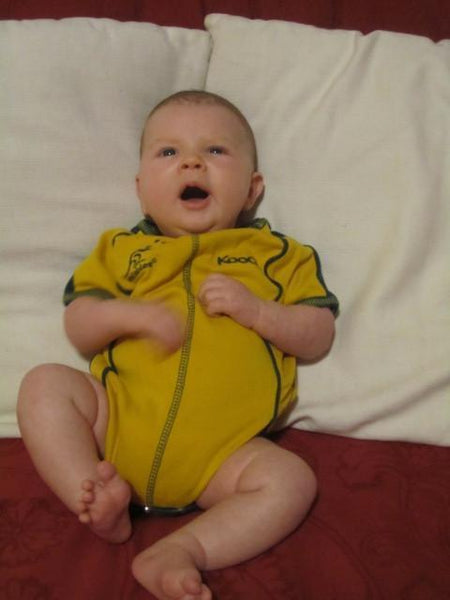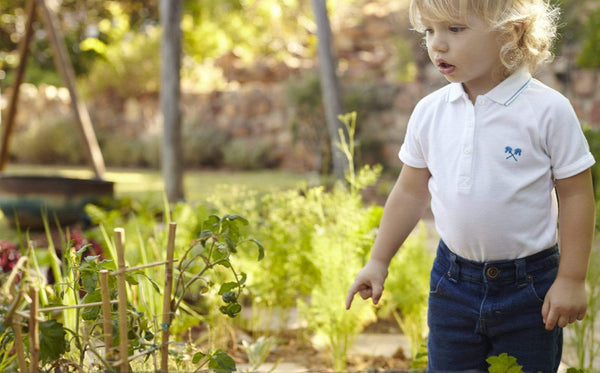It is not all boob 'n bonding: here's how Dads can bond with baby too

Five simple ways for Dads to bond with baby – it’s as easy as pie
Reading time: about 2 ½ minutes
1. No jacket required
Let’s cut right to the chase: the best way to bond with your baby is by holding her skin-to- skin against your chest. Your baby doesn’t care about your hairy chest or developing ‘boep’, no (to misquote Nina Simone), ‘your baby just cares for you’. Your recognisable smell, the warmth of your skin against hers and being able to hear your heartbeat are all that it takes to calm, settle and bond with your child. The benefits of skin to skin contact (SSC) are well documented: from enhancing sleep quality; boosting your baby’s immune system; accelerating brain development; stimulating digestion to improving psychological wellbeing and also as a good way to calm and soothe them. So strip off and get closer.
2. Sweet talk ‘em
As cringe-worthy as it may sound, talking to your baby while he or she is still on the inside does help them recognise your voice on the outside. Although the jury is still out as to when exactly a developing baby starts to recognise voices, babies do respond to external noises from about 30 weeks into pregnancy. You don’t need to go all ‘goo-goo’ and ‘gaa-gaa’ on her, or if leaning in and talking to your partner’s midriff feels like a step too far, simply talking to your partner about your day or reading an article out loud from Monocle, Men’s Health or Mashable is all it takes to start the process.
3. Rock her world
From the outset fathers interact in a different way with their children to mothers. And children need them to. Stereotypically, Dads engage with their children in a more physical and robust way, a style of interaction that encourages the development of skills such as proprioception (knowing where your body is in relation to the world around you), emotion regulation and exploration. So go for it,dance with your baby, lift her above your head and play airplanes, bounce her on a pilates ball, make her laugh, play. Enjoy it.
4. Take him on a date
By the time your baby is 3 months old he or she will start to make associations and begin to get an idea of how things in her life fit together. This is true for parents too. Psychologist Jonathan Pochyly suggests setting aside a ‘date’ or ritual with your baby, such as bathing, reading the bedtime story (it is never too early to start) or taking your baby for a daily walk (try first thing in the morning, or as you get home from work). Find a regular time and pick an activity that works for your family – your baby will soon start to look forward to it as much as you do – and so will your partner!
5. Bedtime basics
Whether you are a routine-led family or prefer to go with the flow, learning to recognise your baby’s tired, ‘I need to sleep’ signals is a good – no essential – idea. Not only will you be able to get your baby to sleep before an overwhelmed meltdown breaks out, it can also give you a great chance to bond as your child nods off. Sing a song, rock him, pat him, lay him down and sitting with him until he falls asleep: you choose.



















